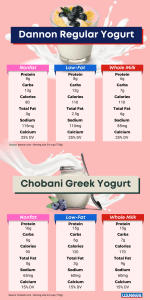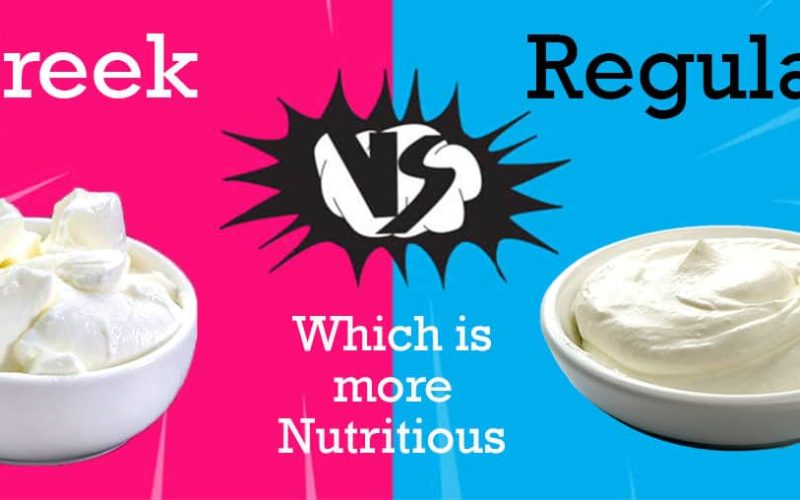This nutritional comparison breaks down the differences between Greek yogurt and regular yogurt, providing insights into their protein, fat, carbohydrate content, and other essential nutrients.
Greek Yogurt vs. Regular Yogurt: The Battle of Nutrients
Protein Content:
-
- Greek Yogurt: Greek yogurt typically contains more protein than regular yogurt. A 6-ounce serving of Greek yogurt can have around 15-20 grams of protein.
- Regular Yogurt: Regular yogurt usually has less protein, with a 6-ounce serving offering approximately 9-12 grams of protein.

https://milkandmore.co.in/wp-content/uploads/2017/12/Milk-and-more-Greek-vs-regular.jpg
Fat Content:
-
- Greek Yogurt: Greek yogurt is often lower in fat, especially if you choose the fat-free or low-fat options. A 6-ounce serving may have around 0-5 grams of fat.
- Regular Yogurt: Regular yogurt can contain more fat, with a 6-ounce serving having approximately 2-7 grams of fat, depending on the type (whole, reduced-fat, or low-fat).
Carbohydrates:
-
- Greek Yogurt: Greek yogurt typically has fewer carbohydrates than regular yogurt. A 6-ounce serving may contain about 5-8 grams of carbohydrates.
- Regular Yogurt: Regular yogurt tends to have more carbohydrates, with a 6-ounce serving offering around 12-17 grams of carbohydrates.
Calcium:
-
- Greek Yogurt: Greek yogurt provides a good source of calcium, with a 6-ounce serving containing about 15-20% of the daily recommended intake.
- Regular Yogurt: Regular yogurt is also rich in calcium, providing approximately 30-40% of the daily recommended intake in a 6-ounce serving.
Probiotics:
-
- Both Greek and regular yogurt can contain probiotics, which are beneficial for gut health. However, the specific strains and amounts may vary among brands and types.
Sodium:
-
- The sodium content in both Greek and regular yogurt can vary widely depending on the brand and flavor. It’s essential to check nutrition labels for specific values.

https://www.usnews.com/object/image/00000189-65a4-d68b-a1b9-efee927a0000/tall-dannon-v-chobani-1.png?update-time=1689690753595&size=responsiveFlow970
- The sodium content in both Greek and regular yogurt can vary widely depending on the brand and flavor. It’s essential to check nutrition labels for specific values.
Which One Is Healthier?
The choice between Greek yogurt and regular yogurt depends on individual dietary preferences and nutritional goals. If you aim to increase protein intake and reduce carbohydrates and fat, Greek yogurt may be a better option. Regular yogurt, with its varied fat content, can provide a different flavor and mouthfeel. Both types offer valuable nutrients, and the healthiest choice ultimately depends on your specific dietary needs and taste preferences.












